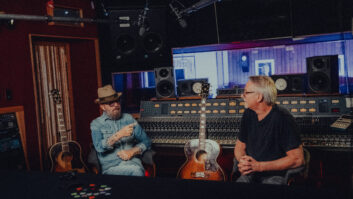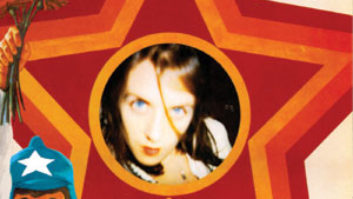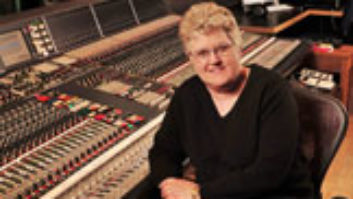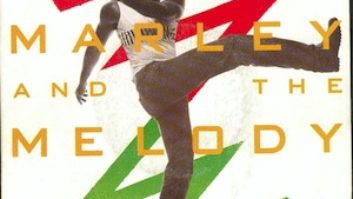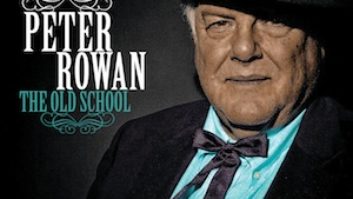
A focal point for the Outlaw country movement during the late 1960s through the 1970s, Hillbilly Central was “the home of all those records Nashville really didn’t want to make,” writes Michael Bane in The Outlaws: Revolution in Country Music (Doubleday, 1978). More than three decades and a couple of ownership changes later, the studio once considered the Grand Central Station of Outlaw country still puts out records that mainstream Nashville wouldn’t touch. Only now, it’s under the guise of Compass Records, a globally focused independent label with a roster of critically adored folk, jazz, country, Celtic and roots music.
Now: Compass Records founders Alison Brown (L) and Garry West at their new studio headquarters
photo: Erick Jaskowiak
COUNTRY’S ORIGINAL OUTSIDERS
Waylon Jennings, Willie Nelson, Jessi Colter, the Glaser Brothers and a handful of other artists defined the Outlaw country movement with their raw brand of honky-tonk. The Outlaws rebelled against the era’s pop-oriented “Nashville Sound,” opting for edgier fare that was as much rooted in folk storytelling as it was hard-core country. When it came time to record, “Everybody…who was somebody or just wanted to see somebody who was somebody,” as Bane describes, passed through Hillbilly Central.
Brothers Tompall, Chuck and Jim Glaser opened the one-room studio in 1969. On any given day, one might find old-time radio DJ Captain Midnight asleep in one of the offices, or spot Billy Joe Shaver, Bobby Bare, poet/songwriter Shel Silverstein, Kris Kristofferson, Mickey Newbury or Kinky Friedman storming through the place to either record, party, hang out or engage in some combination of the three.
COUNTRY’S NEW OUTSIDERS
Today, mainstream country still leans toward slick, homogenized pop, and there’s still a group of artists, labels and other industry folk in Nashville that refuse to conform to Music Row standards. Compass Records — which assumed the historic studio/office space in April 2004 — is, admittedly, much tamer than the building’s original occupants. To give you an idea, Jennings’ former “office” is now a playroom for Hannah, the three-year-old daughter of Compass co-owners Alison Brown, a Grammy-winning banjo virtuoso, and her husband, bass player/producer Garry West. “We’re not quite the outlaws that the original outlaws were, but we still operate pretty far outside the boundaries of what goes on around most of Music Row,” West says. Nevertheless, the label celebrates its 10th anniversary this year, has overseen the release of nearly 200 albums and was cited by Harvard Business School (Brown’s alma mater) as a model of entrepreneurship.
The revolutionary spirit remains, although the space itself — fittingly located just off the perimeter of Music Row — has undergone several transformations through the years. Battery Studios, a part of Zomba Music’s family that includes equipment rental company Dreamhire and other Battery recording facilities in New York, Chicago and London, set up shop in 1992. When Battery moved out in 2000, they took two modified and morphed-together vintage Neve 8068 consoles with them. Their downstairs neighbors, Dreamhire and Zomba Music Publishing, then expanded into the space: Dreamhire adding a small edit/transfer suite and Zomba acquiring more office space.
The Dreamhire/Zomba contingent moved out in October 2003, leaving the building vacant. Meanwhile, Compass Records was “busting out of the seams” of its pink bungalow near Vanderbilt University, and Brown and West began searching for a building with more warehouse space for their growing catalog and room for an in-house studio.
Compass Records moved into the space in May 2004, using the downstairs level as label headquarters and — with the help of Brown’s front-of-house engineer, Erick Jaskowiak — turned the former Battery Studios facility into Compass Sound Studios. The second-floor space didn’t require much renovation in terms of acoustics; only a few cosmetic improvements were required. Jaskowiak, now Compass’ chief studio engineer and Brown’s touring engineer, put together the equipment package.
“The panels for the mic lines were in the wall; the cables under the control room were just snipped off,” says Jaskowiak of his blank canvas. “We were able to use them, but we brought everything else in. It was one of those dream situations: I could put in what I wanted and lay it out in a way that made sense to me.”
Then: Hillbilly Central PR gal Hazel Smith (L), who reportedly coined the term “outlaws”, with Tompall Glaser
photo: Michael Minardi
His choices include a Pro Tools|HD2 workstation with a Control|24 console housed in an Argosy desk. Outboard gear comprises a Tube-Tech CL1B compressor, Millennia EQs, and API, Millennia and Valve Audio pre’s, among others, which work with a closet of Neumann, Sennheiser, AKG, Earthworks, Shure and Audio-Technica mics.
The studio area, with its Formula Sound Cue-8 headphone system, houses a spacious drum/tracking room, a piano booth with a Yamaha C7 grand piano and four smaller iso booths. “The tracking room, control room, piano booth and two small isos all have windows to the outside, which adds to the feel of the place but doesn’t create any sonic problems,” says West. “We have two live echo chambers and lots of additional warehouse space in the basement.”
Three months after moving in, Jaskowiak recorded his first Compass album in the new studio: Brown’s newly released Stolen Moments. The Indigo Girls drove in from Atlanta to sing on a rendition of “Homeward Bound,” while fiddle player Stuart Duncan, pianist John R. Burr, guitarist John Doyle and drummer Kenny Malone — a regular at the studio since the Glaser Brothers days — filled the remaining live room space.
“Having the freedom to work in your own studio is much more liberating than I ever thought it would be,” says Brown. “Not to feel like you have to get another track done because that’s what you budgeted for — all that pressure, it’s wonderful not to have that. To be able to personalize the space that you make music in is a real gift. Almost every record I’ve made has been in a rental studio, and you can really feel more comfortable when it’s your own.”
Having their own studio has also allowed Compass to take on projects they may not have had the means to do before. For example, the label donated its studio and services to Hands Across the Water, a compilation that joins Celtic artists (Altan, Solas, Lúnasa and Maura O’Connell) with Americana, country and bluegrass performers, such as Jim Lauderdale, Rodney Crowell, Vince Gill, Tim O’Brien and Brian Sutton, among others. Compass will sell and distribute the CD, and proceeds will be donated to Save the Children, an organization formed to help rebuild lives of children affected by the tsunami disaster.
While Compass Sound Studio mainly serves as a recording home for their growing artist roster — they recently wrapped up new albums with Irish legend Paul Brady and former Solas guitarist John Doyle — West and Brown say they’re open to outside clients. “We didn’t build it as a rental studio, but that said, if the dates are available and especially if it’s people we know or Erick knows, we would like to make the room available,” says Brown. “We like to think that we could be a go-to point for people making good-sounding acoustic music. The room is great for that, and I hope that some of the people that I love and admire will find their way to the studio.”
Heather Johnson is a Mix assistant editor.
